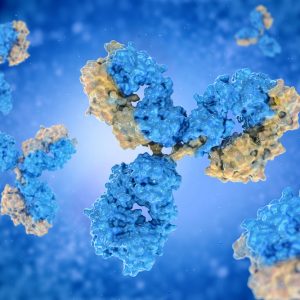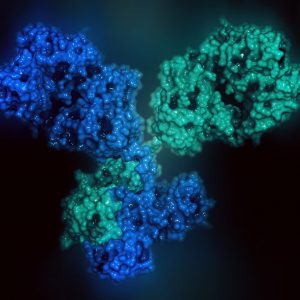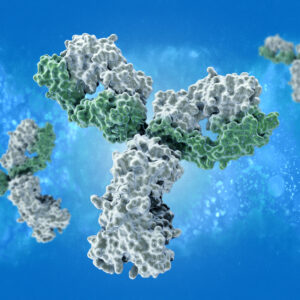Giardia
Giardia lamblia is an anaerobic, flagellated eukaryotic protozoan and member of the Hexamitidae family of protozoa. Giardia lamblia infects and colonises the small intestine of humans and mammals, causing a globally-common diarrheal disease, known as giardiasis.
The Native Antigen Company offers Giardia monoclonal antibodies for use in immunoassay development.
Giardia Background
Giardia lamblia exists in two forms, as a dormant cyst that infects the small intestine and as a trophozoite – a vegetative form that excysts from the cyst. Trophozoites replicate within the intestine causing the symptoms associated with giardiasis. Both cysts and trophozoites are present in contaminated faeces, but trophozoites do not survive for long periods in the environment. G. lamblia cysts are found in soil and water, and on surfaces contaminated by faeces from an infected individual. Giardiasis infection in humans occurs by transmission of dormant G. lamblia cysts via the faecal oral route or through ingestion of contaminated food and water (CDC).
Giardia Antigens
We are pleased to offer inactivated Giardia Lamblia cysts, purified from the faeces of experimentally infected gerbils using density gradient centrifugation and repeated washing, for use in assay development. Antibodies against this antigen are also available.
Giardia Antibodies
Our Giardia-specific antibodies are specific to the trophozoite protein of Giardia lamblia. Our Giardia antibodies do not cross react with Campylobacter spp., Clostridium difficile, Cryptosporidium parvum, Entamoeba histolytica, Escherichia coli, Helicobacter pylori, Listeria monocytogenes, Salmonella spp., Shigella spp. or Staphylococcus aureus.
We also have two monoclonal antibodies available, which may be used as pairs in immunoassay development.
Questions?
Check out our FAQ section for answers to the most frequently asked questions about our website and company.




